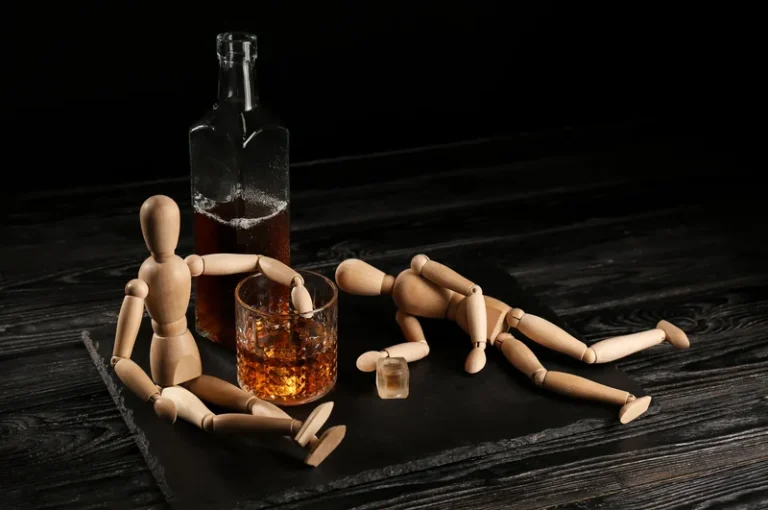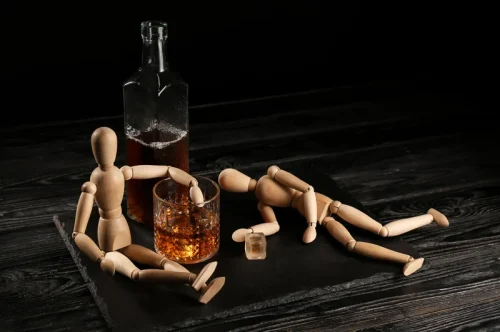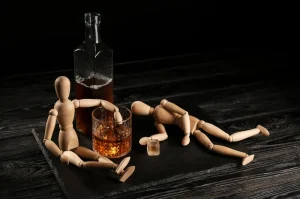
And for some people, talking about your lapse could risk your personal safety or your living situation. Relapse is particularly dangerous with opioids, including prescription painkillers and heroin. Those drugs can slow your breathing to the point that you die. If you are worried about a relapse, there’s a medication, called naloxone, that you can keep handy.
- It means they have to try again and continue to practice healthy eating.
- Whether it lasts a week, a month, or years, relapse is common enough in addiction recovery that it is considered a natural part of the difficult process of change.
- The trick to forcing new synaptic growth is to replace the common triggers to use drugs with a better environment so you aren’t reminded of previous substance abuse.
- Insurance plans are not allowed to impose lifetime or dollar limits on substance abuse coverage, so treatment is covered regardless of how many times a person has received treatment in the past.
- The best way to avoid a relapse is to take good care of yourself.
Embrace Recovery As A Lifestyle

Through the years my perspective has changed and helped shaped who I am today but, I still face difficult challenges that are hard to overcome. I’ve worked hard to learn https://ecosoberhouse.com/ how to love myself but the road is long and I recognize I still have a long way to go. I hope my story can make at least one person feel less alone and, provide some faith in the future. Cognitive behavioral therapy (CBT) is an important tool for preventing relapses. It teaches you how to overcome negative thinking, which is often at the heart of a relapse. For example, you might believe that you can’t quit, that recovery takes too much effort, and that you won’t enjoy life as much without alcohol.
- Take your medications as directed, even when you’re feeling good.
- Relapses are an opportunity to learn more about yourself and your disease.
- Slips can cause a transition from an emotional relapse to a mental relapse or from a mental relapse to a physical relapse.
Maintenance Treatment: Preventing More Episodes
- A formal recovery plan gives you strategies for dealing with people or situations that could trigger relapses.
- One of the most dangerous aspects of relapse is the increased risk of overdose.
- Such feelings sabotage recovery in other ways as well—negative feelings are disquieting and are often what drive people to seek relief or escape in substances to begin with.
- With the help of a person’s recovery community, these signs can be identified and worked through before relapse occurs.
Engaging in self-care may sound like an indulgence, but it is crucial to recovery. For one, it bolsters self-respect, which usually comes under siege after a relapse but helps motivate and sustain recovery and the belief that one is worthy of good things. Too, maintaining healthy practices, especially getting abundant sleep, fortifies the ability to ride out cravings and summon coping skills in crisis situations, when they are needed most. There is an important distinction to be made between a lapse, or slipup, and i relapsed again a relapse.

You’re lonely
Even Halfway house people who have been sober for years often struggle at first to get it right. Many will relapse three or four times—sometimes more—before figuring out what works. But when people start to relapse, the decline is obvious. They may stop taking care of themselves or start making excuses for their problems. I’m a writer, competitive chess player, Army veteran, physicist, and former professional heavyweight boxer. My work focuses on self-development, realizing your potential, and sobriety—speaking from personal experience, having overcome both poverty and addiction.

- Individuals may be bargaining with themselves about when to use, imagining that they can do so in a controlled way.
- Remember, each day is a new opportunity to continue towards your recovery goals.
- Every alcoholic possesses genetic traits that helped cause alcoholism to develop in the first place.
- This list can include personal goals, aspirations, loved ones, or simply the desire for a healthier and happier life.
- The lure of instant gratification is a lifelong temptation.
The synapses in the brain can be pruned, but they can also regrow. You can unlearn any environmental triggers you learned. If you are like my client and have witnessed this scenario with your own loved one, please know that you are not a participant in theirs or anyone’s relapse. No matter what you did or did not do, how you said it or didn’t say it or whatever role you think you may have played in this outcome, you are not a contributing factor. The alcoholic/addict is the only one in charge of their recovery…or relapse.

My provider kept me on the new antipsychotic I prefer but just increased the dose. So, I let him have a real dialogue with me and let him draw his own conclusions without my assumptions getting in the way. In doing so, I received reassurance that I’m most likely safe but that we are upping my dose just to be careful. And not only was this a solution I like that still prevents a side effect I don’t like; it also solved my problem where I am now symptom-free again. I realized I was hearing something that wasn’t there, and then I lost trust in myself about what I was actually hearing and what I wasn’t late at night when I couldn’t sleep.


